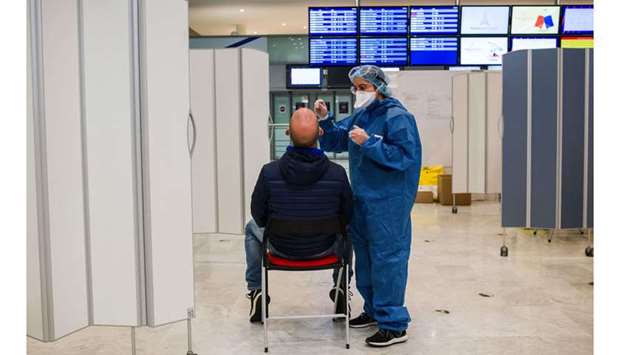Beyond the Tarmac
The Covid-19 pandemic has created a global crisis that is having a significant impact on the commercial air travel industry and passengers.
Before the coronavirus, a decades-long aviation boom spawned a network of nearly 50,000 air routes that traversed the world.
But in less than a year, the pandemic has wiped almost a third of them off the map!
Governments around the world have already provided $173bn to airlines, but many programmes are running out as the Covid-19 crisis continues far longer than was anticipated. Hence, more support will be needed to see the industry through.
Systematic pre-departure Covid-19 testing is key to restoring the highly disrupted air connectivity across the globe.
Pre-departure testing is an added layer of protection to the strong measures many countries have already in place, such as mandatory quarantine, which however, discourages most passengers from flying.
The deployment of rapid, accurate, affordable, easy-to-operate, scalable and systematic Covid-19 testing will ensure that at current infection levels, aviation will not become a meaningful vector of new transmissions.
A recent survey initiated by the International Air Transport Association reveals that a majority of passengers strongly support and are willing to undergo testing.
Recently, the United States announced that all passengers arriving in the US would require proof of negative Covid-19 test (from January 26).
Under this, air passengers are required to get a viral test (a test for current infection) within the three days before their flight to the US departs, and provide written documentation of their laboratory test result (paper or electronic copy) to the airline or provide documentation of having recovered from Covid-19.
Many other countries also demand proof of passengers’ negative Covid-19 test result or provide documentation of having recovered from the virus.
Health experts say testing before and after travel is a critical layer to slow the introduction and spread of Covid-19.
“Testing does not eliminate all risk,” points out CDC (US Centers for Disease Control and Prevention) director, Robert R Redfield.
“But, when combined with a period of staying at home and everyday precautions like wearing masks and social distancing, it can make travel safer, healthier and more responsible by reducing spread on planes, in airports and at destinations,” Dr Redfield adds.
The pandemic is far from over. The Covid-19 situation continues to be unpredictable and changes rapidly.
That’s why it is absolutely essential that we must adapt rapidly, continue to be vigilant and take action to reduce the risks of spreading the virus.
“Testing is the best way that we see to stop the spread of the virus and start the economic recovery. How much more anguish do people need to go through – job losses, mental stress – before governments will understand that?” asks Alexandre de Juniac, IATA’s director general and CEO.
“Covid-19 has devastated the balance sheets of our member airlines and we need continuing government support to enable the aviation industry to restart and rebuild connectivity. Without the economic benefits that aviation delivers, the global economic recovery will be much weaker and slower,” de Juniac said.
Re-establishing air connectivity is essential to kick-start the global economy, which is severely hampered because of the impact of Covid-19.
The aviation industry connects the world in a unique way, adding immense value to the global economy. Aviation supports $2.7tn in world economic activity (3.6% of global gross domestic product), and accounts for nearly 10% of global employment tied to travel and tourism.
The world’s airlines carry over 4bn passengers a year and nearly 62mn tonnes of freight. Providing these services creates 10.2mn direct jobs and contributes $704.4bn to global GDP.
The global air transport industry is larger than both the automobile manufacturing sector and the pharmaceutical manufacturing industry by GDP. In fact, if air transport were a country, its GDP would rank 20th in the world, similar to that of Switzerland or Argentina.
Although it has been demonstrated that it is possible to resume activities following the appropriate protocols, industry captains are confident that vaccination will allow everyone to feel safe in different environments and, mainly, will allow us as a society to recover countless economic sectors and millions of jobs that are currently depressed.
The economic cost of the breakdown in global connectivity makes investing in a border-opening testing solution a priority for governments.
The human suffering and global economic pain of the crisis will be prolonged, if the aviation industry – on which at least 65.5mn jobs depend directly and indirectly – collapses before the pandemic ends.
* Pratap John is Business Editor at Gulf Times.


